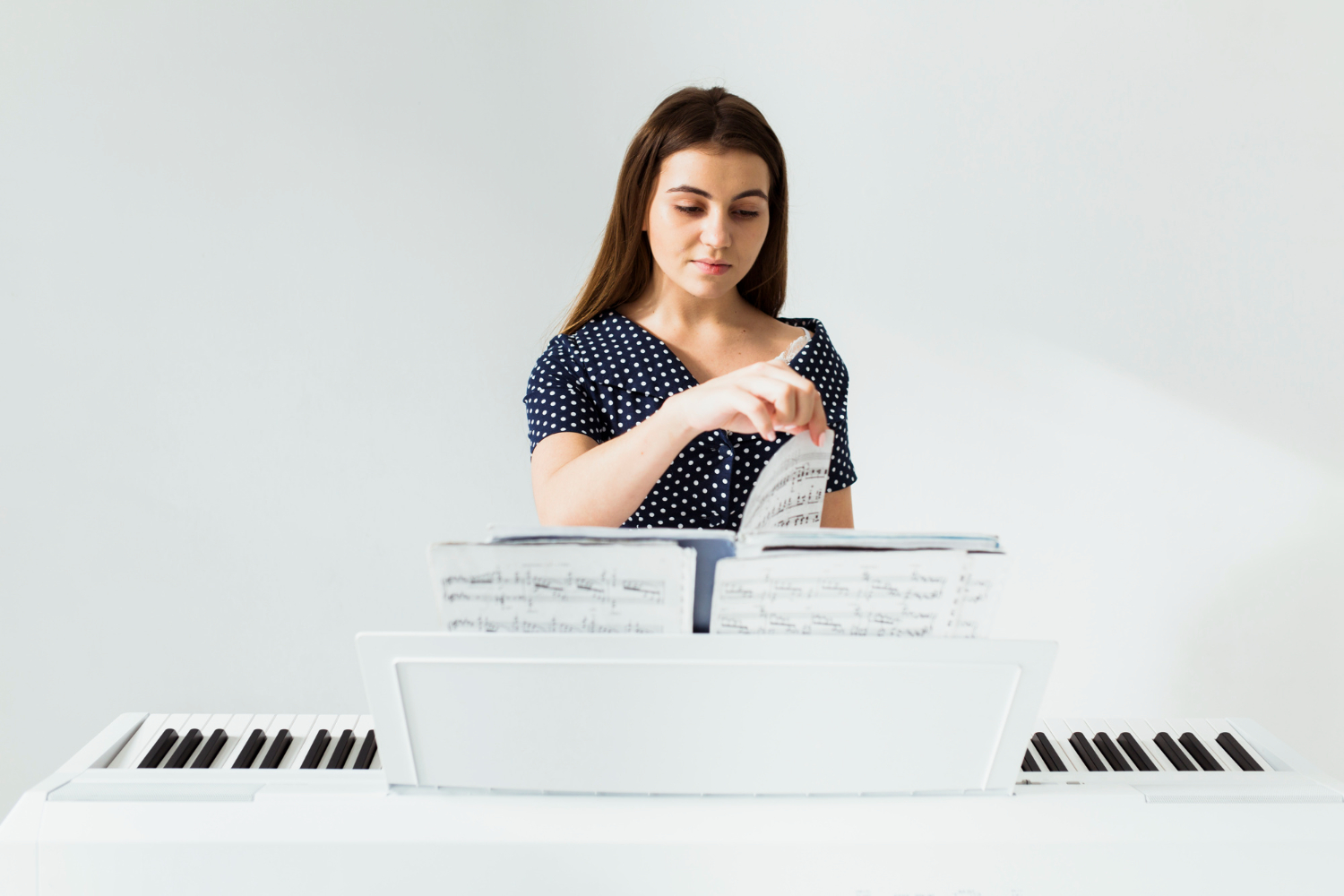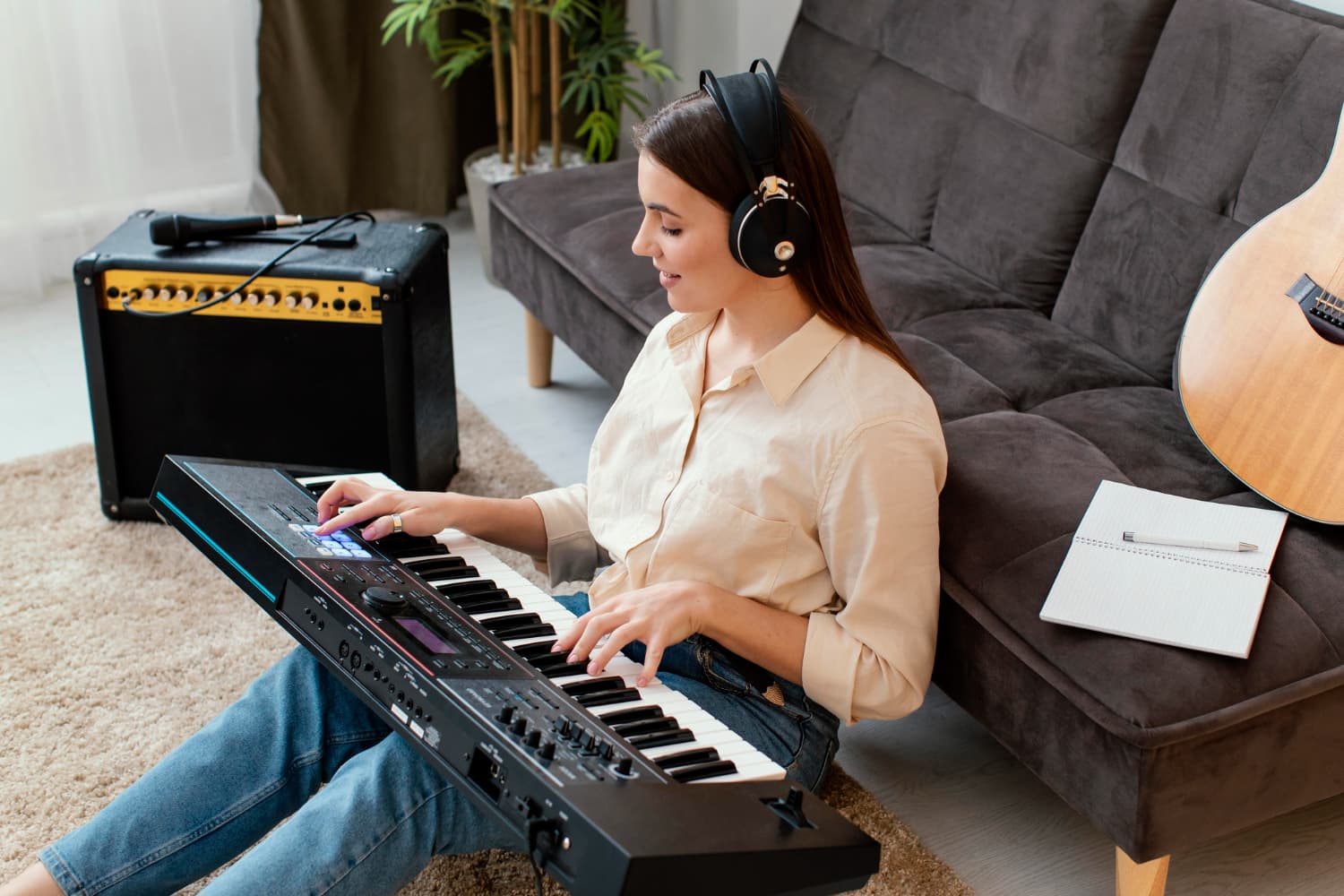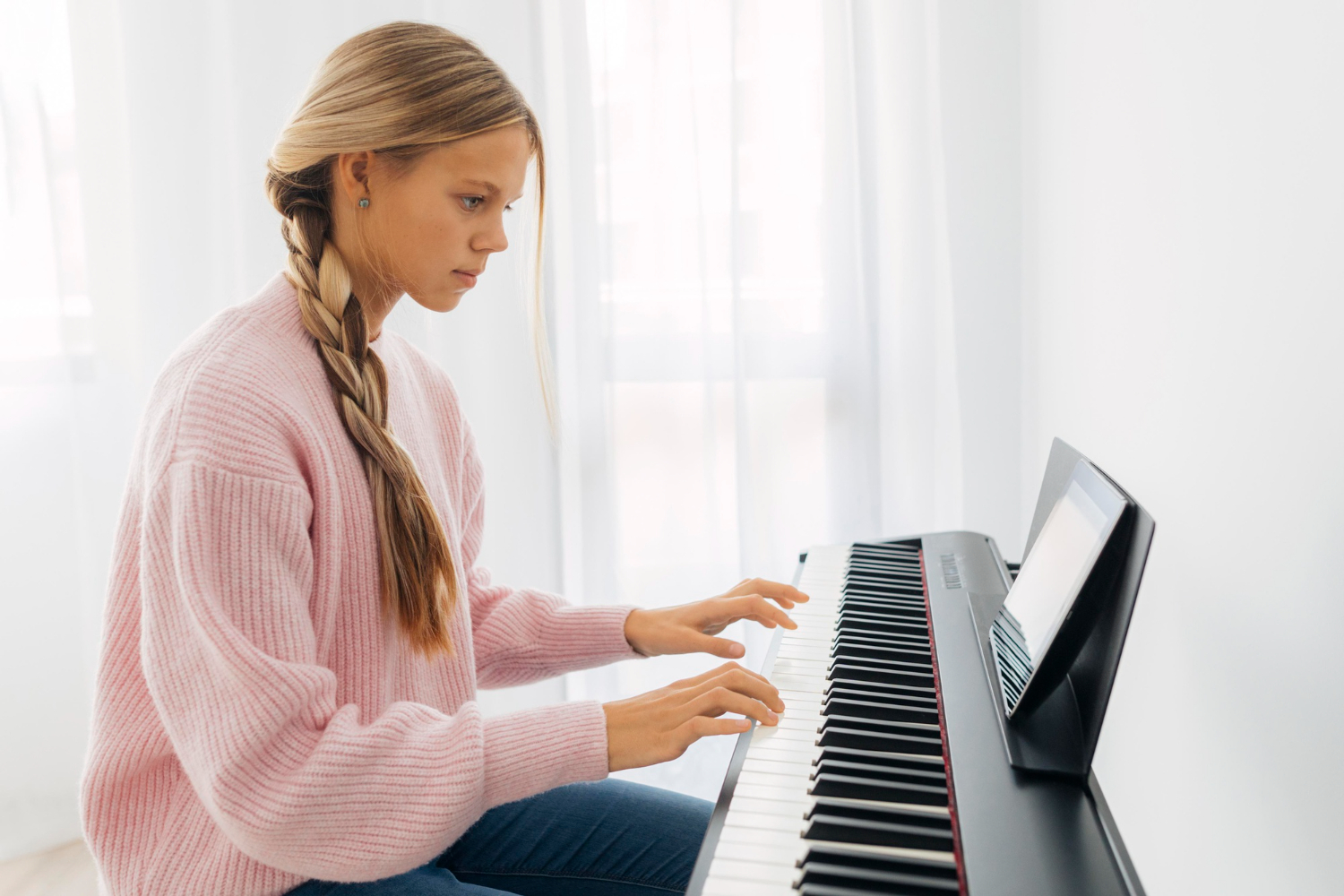Learning to play the piano is a skill that takes time and commitment, but it’s also one of the most rewarding journeys you can make.
At the outset, most people want to know how long it will take them to get to grips with the instrument and play with freedom.
The answer varies from person to person depending on how they are learning, their practice habits, and how much time they commit to honing their skills.
Here, we’ll explore everything you need to know as a beginner about how long it takes to learn piano and provide insights to help you on your musical development.
Is piano hard to learn?
Learning to play the piano is undoubtedly challenging, but this is part of what makes it such a fulfilling experience.
If you have previous musical experience, the learning process may be slightly easier but, understandably, the piano can appear daunting for beginners.
The ability to coordinate both hands and read music simultaneously is a skill that does not come naturally to most. However, with regular lessons, practice and perseverance, this capability will develop over time.
In fact, many musicians familiar with how to play another instrument often comment on how the clear layout of the piano keys and sheet music actually makes the piano easier to get to grips with.
How quickly can I learn piano?
Each person’s learning timeline is unique.
The length of time it takes to gain a comprehensive understanding of the piano depends on a student’s age, previous musical experience, and how much time they can commit to their new musical endeavour.
Generally, children and beginners can start to play simple melodies and chord progressions within a matter of weeks to months.
Young children, in particular, have been shown to rapidly develop piano skills because their brains are more receptive to absorbing new information.
For adults, learning the piano can start off as a slower process, but over time it will become easier as they begin to understand the more complex pieces and continue more disciplined practice.
Whatever your age or skill level, it’s essential to set realistic expectations for your piano learning journey to avoid unnecessary frustration and being tempted to quit.
However, by celebrating small victories and recognising your commitment to each practice session is an achievement in itself, you will find yourself inching closer to your end goal.
Can piano be self-taught?
Yes, the piano can be self-taught thanks to all the countless resources now available to budding musicians!
With the help of YouTube tutorials, tips from TikTok, specialised piano apps and other online resources or even instructional books, self-taught learners can progress at their own speed.
However, the critical area that individuals teaching themselves to play will miss out on is a teacher’s personalised feedback and expert knowledge.
Piano teachers ensure beginners benefit from a structured progression, understanding the basics so that they can truly master each piece.
Often, a combination of self-taught learning and the occasional piano lesson from a professional can ensure you are on the right track.
Once you progress past the initial beginner stage and move on to more intermediate playing, you may benefit from investing in a new piano to ensure you have a quality instrument to continue developing your skills.
How can I overcome challenges when self-teaching?
Without the support of a teacher, learning the piano can be challenging, particularly when it comes to overcoming specific hurdles.
Here, we’ve detailed our top tips to help you move past these difficult moments:
- Take a break: In moments of frustration, we always recommend taking a break from playing to stretch your hands and legs. By taking time away from the keyboard, you can return when you feel calmer, with fresh eyes, ready to tackle the problem.
- Break down each piece: With any challenging piece, pianists always divide it into smaller sections to practice individually before combining them.
- Invest in a metronome: By using a good old-fashioned metronome or, if one isn’t available, a metronome mobile app, you can develop a better sense of timing and rhythm to assist you with each piece.
- Feedback: Even self-taught players can benefit from the valuable experience and attuned ear of a more professional player or a teacher. Gaining this feedback is one of the most effective methods of improving your playing.
- Don’t give up: Learning the piano can feel challenging at times but is equally as rewarding. Each session brings you closer to your musical goals, so in moments where it feels that you aren’t making progress, take a step back, reflect on how far you’ve come, and remind yourself that perseverance and consistent practice are the key to success!



